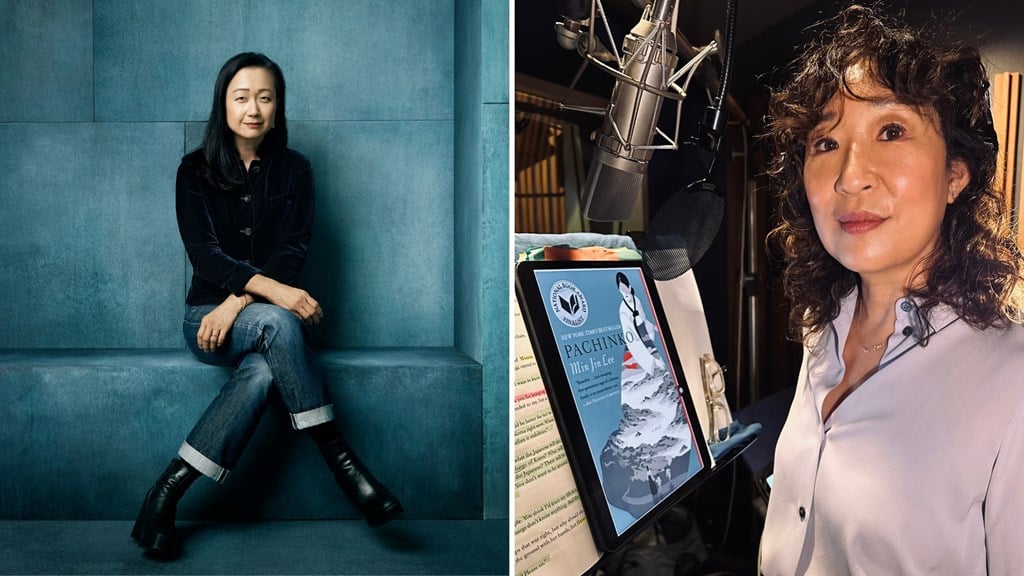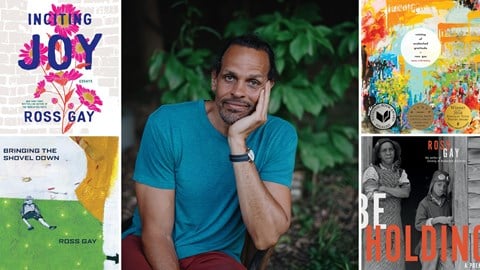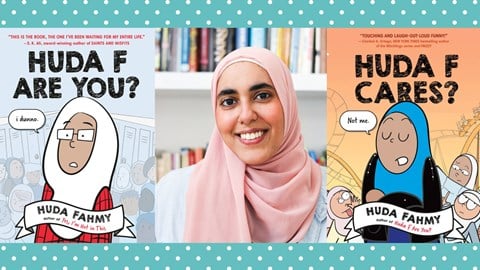 Min Jin Lee’s 2017 novel, PACHINKO, earned a prominent place on many bestseller lists, including The New York Times’s “Best Books of the 21st Century.” Recently, when the prospect of a new audio edition arose, Lee considered who best to perform it. Her conclusion? She says her first thought was “the magnificent Sandra Oh.”
Min Jin Lee’s 2017 novel, PACHINKO, earned a prominent place on many bestseller lists, including The New York Times’s “Best Books of the 21st Century.” Recently, when the prospect of a new audio edition arose, Lee considered who best to perform it. Her conclusion? She says her first thought was “the magnificent Sandra Oh.”
“I think Sandra Oh is one of the greatest actors of our time, and to have her interpretation of the novel has been an extraordinary gift. She understands the story; moreover, with great emotional fluency, she has been able to dramatize every character, as well as the narrator, who is a separate character altogether. Oh is a master storyteller, and the range of feelings she brings to the work is remarkable.”
An avid audiobook listener herself, Lee appreciates what the format offers listeners. “I love audiobooks, and I listen to them all the time,” she says. “Recently, I greatly admired Ann Patchett’s TOM LAKE, narrated by Meryl Streep. I’m also listening to Robert Caro’s THE POWER BROKER, narrated by Robertson Dean, which is over 66 hours.”
In her own work, Lee adopts an innovative approach to character development—one that uses audiobooks and has presented her with an array of listening experiences. “When I research my characters, I think of books my characters would read and reread, and audiobooks allow me to explore authors on another level. ‘Lion’ is one of my favorite characters in my new manuscript novel, AMERICAN HAGWON, and he is a tutoring center owner. Lion is always searching for ways to help his students. He sees himself as a truthful philosopher, so for his character profile research, I listened to the books by Charles Duhigg, James Clear, Ryan Holiday, Rob Dial, and Gay Hendricks. My starting point was for Lion’s character research, but I ended up learning so much from these authors.”
Lee reflects, “I think audiobooks make me respect storytelling more because I see how the form lends itself to another form of intellectual and emotional engagement. Listening to an audiobook is distinct from a sight reading of a book; neither is superior or inferior. They are distinct experiences, and I believe neuroscientists would agree. An audiobook narrator has the capacity to reflect his/her/their subjective emotional tenor in the oral reading of a text, and having had the tremendous gift of having my works read out loud by gifted narrators, I know for a fact that the audiobook is the gift of a deeply artistic and emotional translation. If anything, I realize the elasticity and emotional range of words when I hear a gifted narrator.”
Lee is an avid reader of 19th--century British and European writers. She will read and reread George Eliot, Tolstoy, Edith Wharton, Zola, Willa Cather, and Balzac. From the 20th century, favorite authors include Toni Morrison, James Baldwin, and Sinclair Lewis. Most recently, Lee finished Claire Keegan’s FOSTER and describes it as “stunning.” Currently, she is reading Emile Zola’s THE LADIES’ PARADISE and Shuang Xuetao’s three novellas, ROUGE STREET.
Originally, Lee never thought she would be a writer. “I read a great deal as a child and as a young person, and I wrote and published essays in high school and college. After practicing law for two years, I quit my job in 1995 to write fiction; however, I did not publish my first book until 2007.”
Now, a typical day of writing begins with reading the Bible, a step adopted from Willa Cather’s writing process. “As for my writing, I write a draft, rewrite, then edit,” Lee says. “I rewrite a great deal.”
Part of what makes novels like PACHINKO so absorbing is the way Lee incorporates historical research. Much like the story itself, the key to her successful research is linked to the human experience. “I pick topics and questions I have an urgent need to understand and explore. I am never bored. I enjoy the verisimilitude of realistic literary fiction. The emotions of fiction require a great deal of empathy on the part of the writer and the reader, and I can get away with the conceit of fiction if and only if my truth telling of context or the conflict feels true to the reader. I do everything I can to keep my reader in the world. I care intensely about the reader’s pleasure and intelligence. Writers must respect the reader’s hunger for truth and insight. I know because I am a reader first.”
--
Leslie Fine is a longtime reviewer for AudioFile.
Min Jin Lee photo by Art Streiber; Sandra Oh photo by Jerry Maybrook





